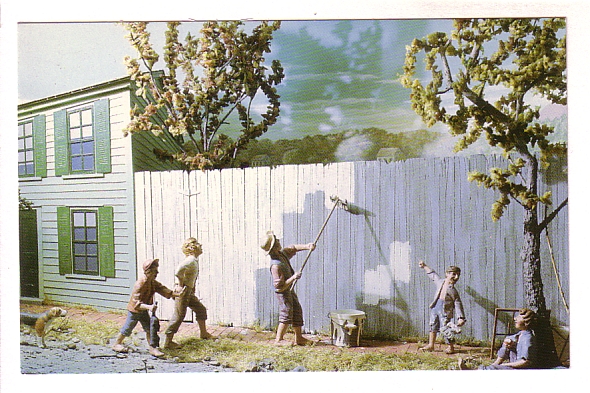“Keep your Confederate money even if it’s made of tin”—The Confederates (a popular 1950’s barbershop quartet)
Some of you may have recently read an opinion piece in the NY Times written, surprisingly, by actor Tom Hanks. It expressed his outrage and concern over the omission of The Tulsa Massacre from the curriculum he’d been offered in his history classes. It is most certainly a shock, as comments about the article stated, especially if you’ve always seen yourself as uniquely committed to the historical record of humanity. Hanks admits to being an amateur history buff who includes it in his story telling often, as many of us do. Mr. Hanks expressed his outrage clearly and simply, with the cry, why didn’t they tell me?, ringing throughout the piece. Near the end of his essay, he says we must, “stop the battle to whitewash curriculums to avoid discomfort for students.”
That was the basic theme of his article, as you’ll see if you go to the link above. His lament sounds familiar when he decries the premise that the Tulsa Massacre was “too painful a lesson for our young white ears.” I know that’s been a popular manifestation of curriculum control over the past couple of decades, and yet, I don’t think it’s fully the point. Mr. Hanks’ argument should address the power to control information for any reason. Whether it’s social media or the school curriculum, everyone should have full and equal access to the same set of facts.
Does that sound familiar? Much of the recent argument in America has resonated with ‘fake news’ and the lack of sharing a level playing field of the same truths, and of course that damages a democracy. It’s not just the curriculum taught in our schools, we know that life-long learning is being affected by the purposeful control of realities for adults as well. But here’s the rub: whitewash doesn’t really work, at least not completely. What’s underneath always shows through eventually. I learned that early on from my southern relatives.
My grandmother’s siblings grew up in the South (Augusta, GA) around the period of the Civil War. I remember my great aunt Mamie telling me how surprised she was when she came north to live with her older sister who’d moved to New York when she married my grandfather. Aunt Mamie said they’d all been taught at home and in school that the South had won the war, and indeed they should save their Confederate money because the southern economy was on the way back and taking over the country. To learn firsthand that none of that was so, and had never been so, and that they’d been denied access to the same facts the rest of the country knew, didn’t make her angry. She had a lovely sense of humor! But she shook her head and chuckled at the ridiculousness of thinking anyone could get away with the ‘coverup’ for long.
So, whether it’s the omission of the Tulsa Massacre in the school curriculum, or the perpetuation of the Great Lie in our social media, it will all come out eventually, just as the true outcome of the Civil War couldn’t be hidden from my great aunt for long. Let’s skip the whitewashing. It doesn’t work. If we take everything back down to the essence of what’s underneath the cover-up and work from there, we’d all be a lot happier. Tom Sawyer had the whole fence whitewashing thing figured out right from the start.


I too am like your aunt Mamie. I was brought in the North to believe that racial violence, the KKK were all confined to the South. Only when I was doing research on a project when I was in my forties did I learn that the KKK had a significant presence in the North and were holding rallies well into the 60’s. I wonder if those who control information could ever be expected to be objective. Rather I think the whole idea behind the the First Amendment and John Stuart Mill’s philosophy which many attribute to the origins of free speech, was the free market place of ideas, with the assumption that the truth will come from debate and argument. Just as in science, professional historians compete for who can have the better argument for a perspective of history.
I think for Mamie and others like myself who were brought up with so many erroneous facts, the answer is to inculcate skepticism and critical thinking so that our citizenry won’t just accept any fact presented without taking the responsibility to check it out, or check out the sources, or compare with countervailing theories.
Very provocative essay. Thank you. My mind has been caught up with it all morning.
Paul
please see the reply to your comment below under anonymous. It went to the wrong place! Thanks again.
“So many of us are writhing over the “whitewashing” of almost every topic you can mention, and the censorship of speech and writing rattle me. I loved your anecdote of Mamie.
Another thoughtful, well-written and important essay.” From Denise Dailey
Thanks, Denise. This has gone on such a long time, but we still must stay vigilant. Freedom of information and that level playing field of facts are necessities forever. That’s why a writer must remain “unblocked”!!
It’s such an all-important topic, yet I remember my great aunt Mamie using nothing but her own common sense to figure out fact from fiction. You couldn’t get anything past her, and I think that was because she was completely opposed to denial of any kind. Deal with the facts no matter how much you dislike them, was her motto. That’s where she thought real strength lay.
Thanks so much for sharing your experiences with the First Amendment with us, Paul. You’re the one who’s always provocative.